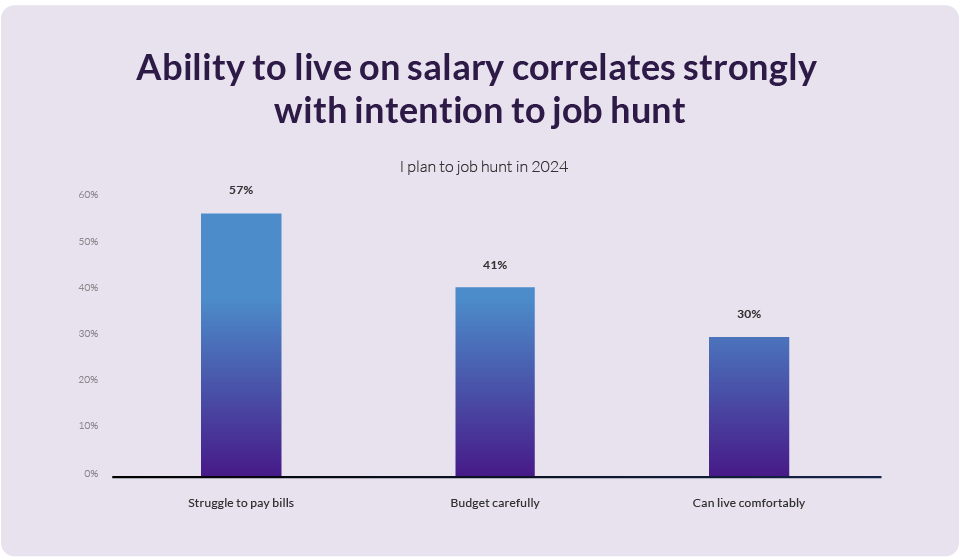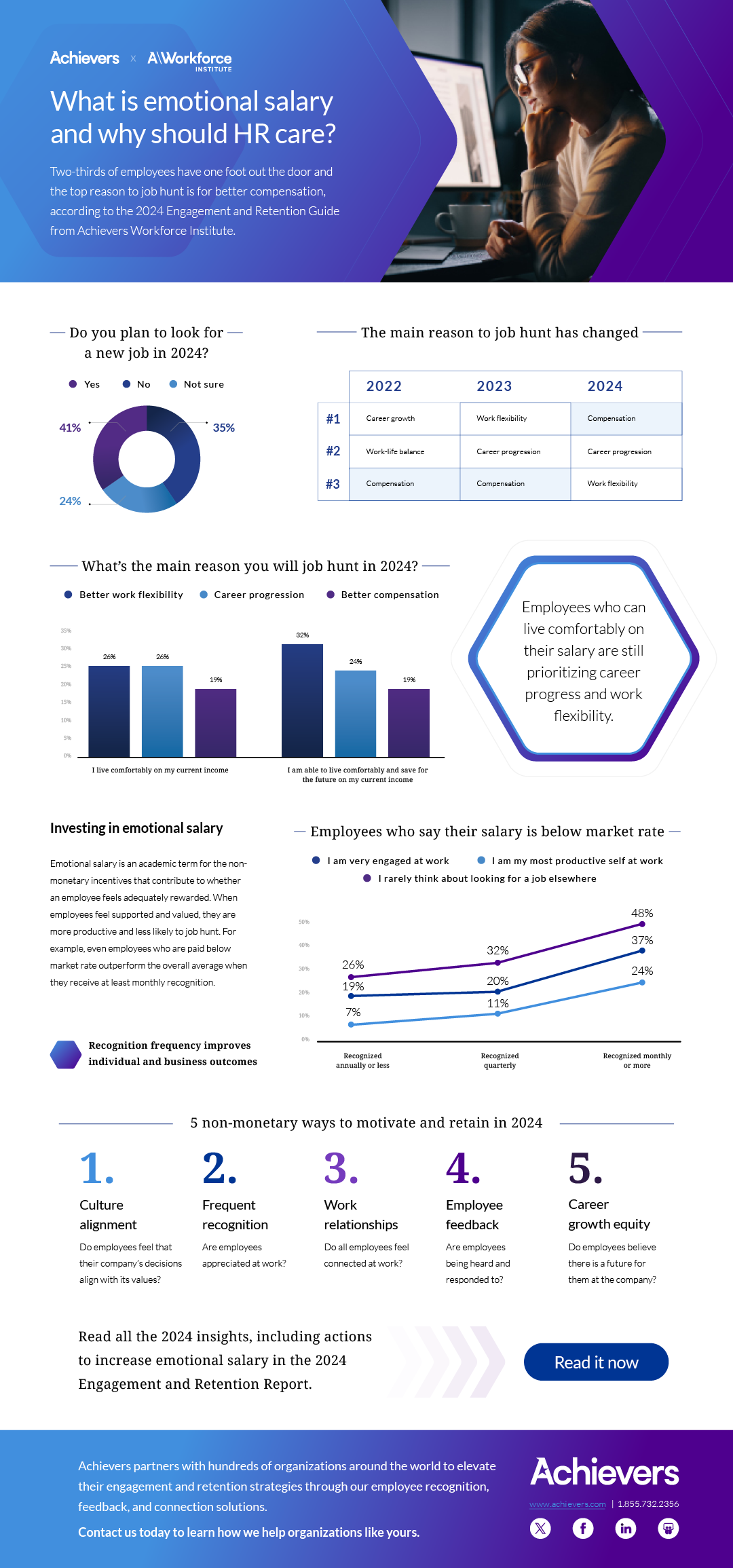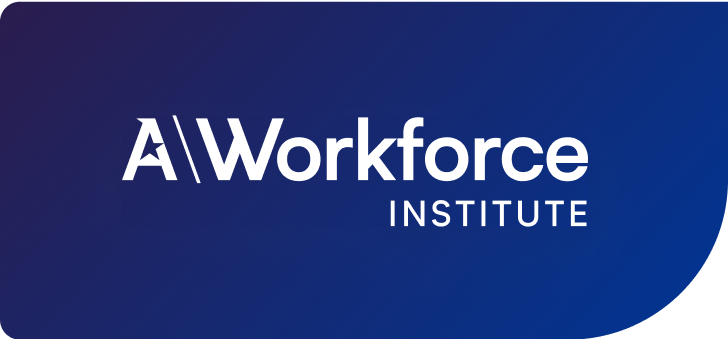What is emotional salary and why does it matter?
Updated on January 30, 2024

This resource is brought to you by:
Topics Covered:
Attracting and retaining talent
Employee engagement
For the first time in six years, compensation is the top reason employees are job hunting, according to the 2024 Engagement and Retention Report from Achievers Workforce Institute (AWI).
But here’s the twist: HR and Total Rewards leaders have a real opportunity to boost engagement, retention, and productivity by investing in non-monetary rewards — without raising base pay.
It’s all about being strategic with where you focus your efforts.
Motivate beyond money
It’s not all about the paycheck. To truly engage employees, focus on their need for belonging, purpose, and community. Recognition, feedback, and meaningful relationships can all have a huge impact on job satisfaction.
Employees who struggle financially are more likely to job hunt, and their main reason? Better pay. In fact, one-third of workers feel they’re paid below industry standards and are actively searching for a higher salary.

But here’s where it gets interesting — 72% of employees would rather work somewhere they feel valued, even if it means a lower salary.
So, if your company can’t match market rates, don’t worry. There are plenty of ways to retain top talent by focusing on emotional salary. It’s about motivating beyond money.
What is emotional salary, and why does it matter?
Emotional salary is everything that makes employees feel valued beyond their paycheck — like recognition, relationships, and career growth. Our research shows that when employees feel emotionally rewarded, they’re more satisfied, productive, and loyal.
Emotional salary is at its most powerful when basic needs are met. Focus on culture, feedback, recognition, and career development, and you’ll keep your top talent engaged and sticking around.
Boosting emotional salary: 5 key factors
Want to keep your top talent engaged and loyal? It starts with emotional salary. Focusing on these five factors can make all the difference:
- Culture alignment
- Recognition
- Relationships at work
- Feedback
- Career progression
Prioritize these elements to create a workplace where employees feel valued, leading to greater satisfaction and productivity.
Have we piqued your interest? Download our emotional salary infographic now to learn how to motivate and retain top talent.
Download the full resource below

Download the full resource

Join our mailing list
Stay up to date with the latest in workforce science from Achievers Workforce Institute.
